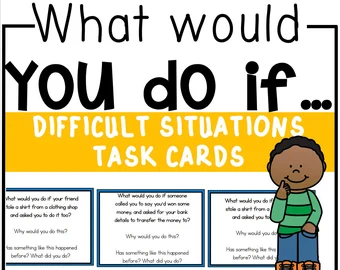In life, we often face unexpected challenges that can test our problem-solving skills, quick thinking, and resilience. These “what would you do” scenarios aren’t just hypotheticals; they offer valuable lessons in preparation, decision-making, and adaptability. Whether it’s a work crisis, a relationship dilemma, or an emergency situation, knowing how to approach these challenges can make all the difference.
Here’s a look at some common “what would you do” scenarios, and practical tips on handling them to be prepared for whatever life throws your way.
1. What Would You Do If You Lost Your Job Tomorrow?
Losing a job can be a major life upheaval, affecting financial stability and personal identity. If this scenario happened, would you know your next steps? Here’s a plan to prepare:
- Build an Emergency Fund: Aim to save at least 3-6 months’ worth of expenses to cover essentials during job transitions.
- Keep Your Resume Updated: Regularly updating your resume ensures you’re ready to apply quickly.
- Network Consistently: Attend industry events, connect with peers on LinkedIn, and build relationships within your field, so you have support if you need a new job.
Preparation Tip: Practice skills that are always in demand in your industry to keep your profile competitive and versatile.
2. What Would You Do If You Witnessed an Accident?
Accidents can happen at any time, and how you respond can impact outcomes for those involved. In this scenario, safety and quick action are essential:
- Stay Calm and Assess the Situation: Ensure your own safety first and check the severity of the accident.
- Call for Help: Dial emergency services and provide accurate information about the location and nature of the accident.
- Offer Assistance: If you’re trained in first aid, you may be able to help until professionals arrive. Otherwise, keep bystanders calm and ensure no further harm comes to anyone.
Preparation Tip: Consider taking a basic first-aid or CPR course. These skills can be life-saving in critical moments.
3. What Would You Do If You Got Lost in an Unfamiliar Place?
Getting lost, especially in a remote area or foreign country, can be intimidating. Having a plan in place for such situations can help you stay safe and find your way back:
- Stay Put If Possible: Moving around can make it harder to find you. If you’re hiking or in a remote area, wait in a visible spot.
- Use Your Phone’s GPS and Compass: Most smartphones have basic compass features and GPS that work without data.
- Stay Visible and Conserve Energy: Avoid wandering in circles. Use bright clothing to make yourself noticeable, and ration any food or water.
Preparation Tip: Always let someone know your plans and carry a charged power bank when exploring new areas.
4. What Would You Do If a Friend Confides Something Serious?
Sometimes, friends share sensitive information that requires a thoughtful response. Whether it’s a health issue, a personal crisis, or a troubling confession, handling these scenarios with care can strengthen your relationship and provide the support they need.
- Listen Without Judgment: Allow your friend to speak without interrupting or offering advice unless they ask for it.
- Encourage Professional Help: For serious matters like mental health or safety concerns, suggest they reach out to a professional.
- Respect Their Privacy: Keep their confidence unless there’s a risk of harm, in which case you may need to involve someone who can help.
Preparation Tip: Learn about local resources, such as hotlines or counseling services, so you can offer helpful information if needed.
5. What Would You Do If You Found a Lost Wallet or Phone?
Finding someone’s personal belongings can happen anywhere, and how you handle it can impact someone’s day—or even their security. Here’s what to do:
- Look for Identification: Check if the item has any identification or contact information.
- Return It to the Rightful Owner: If the owner’s contact information is available, try to reach them directly.
- Hand It Over to Authorities: If you can’t find the owner, turn it into local authorities or security.
Preparation Tip: Be mindful of your own belongings by labeling them with your contact information to make it easier for someone to return items to you.
6. What Would You Do If You Encountered an Aggressive Animal?
Wildlife encounters can happen when you least expect it, especially if you enjoy outdoor activities. Here’s how to react if you come across an aggressive animal:
- Stay Calm and Avoid Eye Contact: Most animals are more likely to back off if you don’t appear as a threat.
- Back Away Slowly: Sudden movements can trigger a chase response.
- Know Defensive Moves: Some animals respond well to loud noises, while others should be avoided completely. Research the area’s wildlife before hiking or camping.
Preparation Tip: Carry a whistle or bear spray in areas known for wildlife, and familiarize yourself with the local animals’ behaviors.
Why Preparing for “What Would You Do” Scenarios is Important
By imagining “what would you do” scenarios, we can build a mindset of preparedness that makes us more resilient. Preparing for unexpected situations isn’t about worrying about the worst; it’s about staying informed, being cautious, and feeling confident that you can handle whatever challenges arise.
Whether it’s by building an emergency fund, practicing first aid, or honing communication skills, each of these small steps makes us better equipped for the unexpected. Life may throw curveballs, but with a proactive mindset, we can handle them with resilience and grace.
